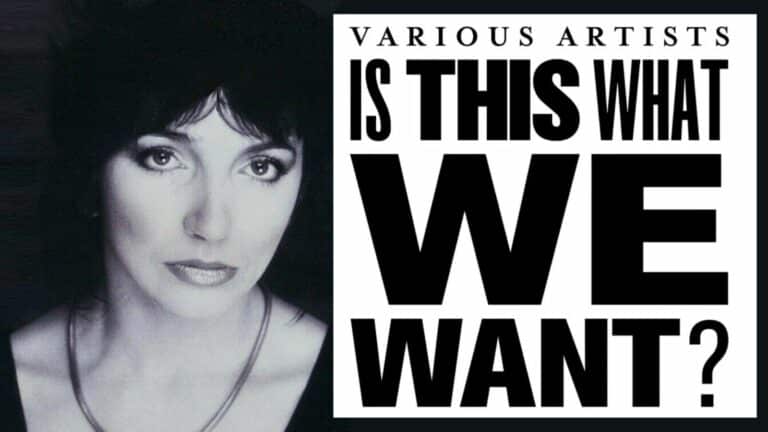More than 1,000 musicians, including Kate Bush, Damon Albarn, and Annie Lennox, have released a silent album in protest against UK government proposals that would allow artificial intelligence companies to use copyright-protected work without permission. The growing backlash from high-profile artists, authors, and industry figures highlights mounting concerns over the future of creative rights in the AI era.
The album, titled Is This What We Want?, features recordings of dormant music studios and performance spaces, symbolising the potential erasure of artists’ work if the proposals go ahead. Led by British composer and former AI executive Ed Newton-Rex, the project is a direct response to government plans to introduce a copyright exemption for AI training.
“The government’s proposal would hand the life’s work of the country’s musicians to AI companies, for free, letting those companies exploit musicians’ work to outcompete them,” Newton-Rex told The Guardian. “It is a plan that would not only be disastrous for musicians, but that is totally unnecessary: the UK can be leaders in AI without throwing our world-leading creative industries under the bus.”
Kate Bush, one of the many artists involved, added: “In the music of the future, will our voices go unheard?”
Other credited co-writers on the album include Tori Amos, Billy Ocean, The Clash, Hans Zimmer, and the Kanneh-Mason family of classical musicians. The track listing spells out a stark warning: “The British government must not legalise music theft to benefit AI companies.” Profits from the album, available on streaming platforms like Spotify, will be donated to the charity Help Musicians.
The AI copyright battle
At the heart of the dispute is how AI models are trained. Generative AI tools, including ChatGPT, Stable Diffusion, and Suno, require vast amounts of data to function. Much of this data comes from publicly available sources, including books, music, and news articles – often without the original creators’ permission. The practice has already led to legal battles from authors, publishers, and artists demanding compensation or an outright ban on using their work without consent.
READ MORE: A force for good: how AI innovation is helping to solve societal problems
The UK government’s consultation on the issue, which closed this week, proposes an exemption for AI developers under “text and data mining” rules, allowing them to scrape copyrighted content unless rights holders explicitly opt out. However, opponents argue the opt-out system is unworkable and unfair, particularly for emerging creatives who may not realise their rights are being exploited until it’s too late.
A growing industry backlash
The protest coincides with broader industry action. National newspapers, including The Guardian, have printed the slogan “Make It Fair” on their front pages, while a letter published in The Times and signed by 34 leading creatives – including Barbara Broccoli, Helen Fielding, Stephen Fry, Andrew Lloyd Webber, Ed Sheeran, and Tom Stoppard – criticised the government’s stance.
“The proposals represent a wholesale giveaway of rights and income from the UK’s creative sectors to Big Tech,” the letter warns.
READ MORE: Demystify the myths and risks as an agency using AI
Stephen Fry added: “You don’t promote growth in a garden by allowing all the pests to feast on the fruit and flowers, and you don’t promote growth in an economy by allowing all the AIs to feast on the fruits of our creators.”
The government and tech industry response
The government argues that current copyright laws are outdated and hinder both AI development and the creative industries. A spokesperson said: “As it stands, the UK’s current regime for copyright and AI is holding back the creative industries, media, and AI sector from realising their full potential – and that cannot continue. That’s why we have been consulting on a new approach that protects the interests of both AI developers and rights holders and delivers a solution which allows both to thrive.”
Meanwhile, AI companies, including OpenAI, have admitted that training AI models without copyrighted material would be “impossible.” Many in the tech sector argue that existing copyright frameworks don’t account for the realities of AI innovation and that a balanced approach is necessary.
The future of AI and creativity
With the UK’s creative industries contributing £126 billion to the economy and employing 2.4 million people, industry leaders are warning that failing to protect intellectual property could have devastating consequences. As the debate continues, the creative sector remains firm in its stance: AI should not be built on the backs of artists, musicians, and writers without fair compensation or consent.
What do you think? With tensions mounting, the debate over AI and copyright is set to shape the future of creative industries, digital media, and content ownership in the UK – and we’d love to hear what you think about the debate. Get in touch at [email protected] and let us know what you think.










